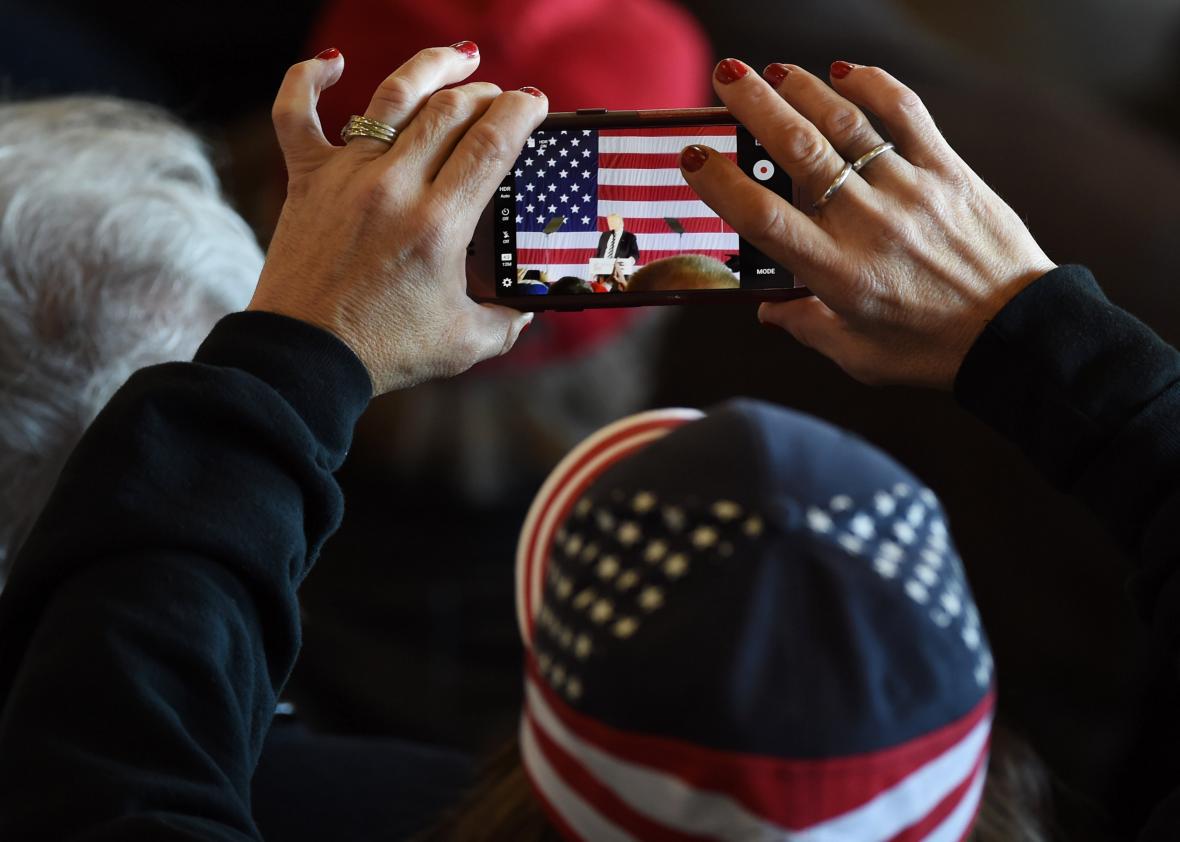Greetings, Future Tensers,
The reports regarding President Trump’s god-awful phone and Twitter security have brought much needed attention to personal cybersecurity, and cybersecurity expert Josephine Wolff suggests it most likely won’t bode well for national policy. While the White House figures out two-factor authentication for its Twitter accounts, Future Tense writers are calling upon Congress and law enforcement agencies fix outdated laws and have an “adult” conversation about encryption. Hopefully, some adults among them can help figure it out.
If you laughed at Trump’s personal cybersecurity but secretly don’t know what a virtual private network is, let alone how to use one, we have good news for you. This month, Future Tense will be helping you beef up your personal cybersecurity with the February installment of Futurography—our online course offering monthly breakdowns of the science and tech topics that define our time. All month we’ll be offering practical tools, tips, and tutorials on how to protect your privacy online. As always, we’ll start you off with a conversational introduction and cheat sheet to guide you through the key players, lingo, and major security debates. We’re even hosting a live cybersecurity self-defense class in Washington, D.C., on Feb. 16.
While you anxiously await new Futurography content you can test what you learned from last month’s installment on Frankenstein by taking our quiz and telling us what you think about the legacy of Mary Shelley’s novel in our survey. I’m particularly looking forward to reading your thoughts on biohackers, a subculture of professional scientists and amateur enthusiasts building a community for scientific exploration. Some are taking do-it-yourself science to the extreme by hacking their own bodies—seen anyone walking around with an antenna attached to their head recently?
Here are some of the other things we read this week while setting up our own two-factor authentication:
- Inauthentic content: Will Oremus unpacks the recent changes Facebook has made to make its news feed both more trustworthy and more timely.
- Automated manufacturing: Daniel Bliss writes that manufacturing employment is down not because of NAFTA or weak trade policy but because of people like him: engineers and scientists advancing the capabilities of machines. And yes, he feels pretty guilty about it.
- Tech-supported activism: Wondering what to do after the protest? Hollie Russon Gilman’s four strategies to organize and to hold politicians accountable are an excellent place to start.
- The American internet: Did you miss our event last week on the internet’s nationality? Rachelle Hampton covered the highlights in her recap. You can also watch video of the event here.
Events:
- On Thursday, Feb. 2 (yup, that’s tomorrow!), we conclude our January installment of Futurography on the legacy of Mary Shelley’s Frankenstein at a live event in Washington, D.C. We’ll explore how the novel continues to influence the way we confront emerging technologies, understand the complex relationships between creators and their creations, and weigh the benefits of innovation with its unforeseen pitfalls. RSVP to attend in person or watch online here.
- You may not be high on Putin’s to-hack list, but there are still good reasons to protect yourself online. And there is no better place to start than a Future Tense happy hour. Bring your devices and join us for drinks and demos on Feb. 16 in Washington, D.C., for a Cybersecurity Self-Defense Class where experts will teach you how to use a virtual private network, cover your digital tracks, use secure communications platforms, and more. RSVP to attend in person or watch online here.
Changing my passwords,
Emily Fritcke
For Future Tense
Future Tense is a partnership of Slate, New America, and Arizona State University.
